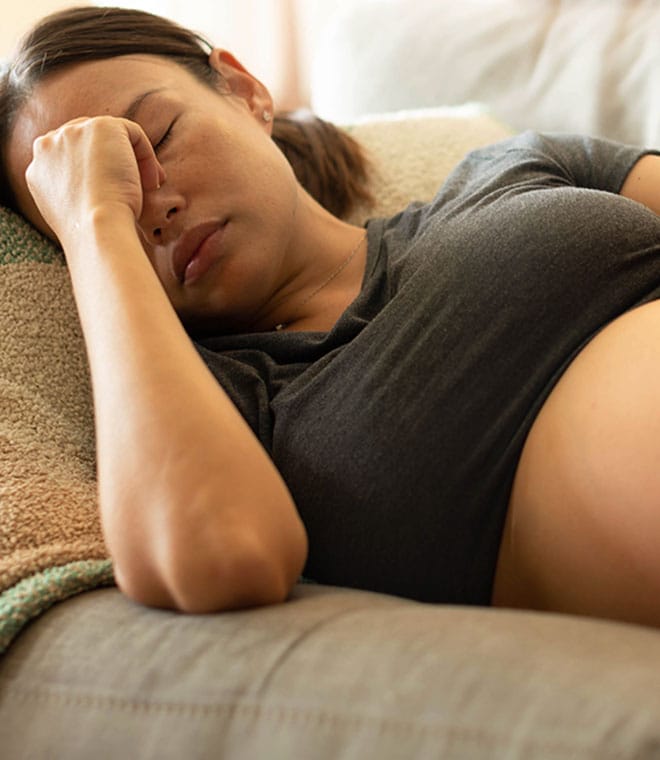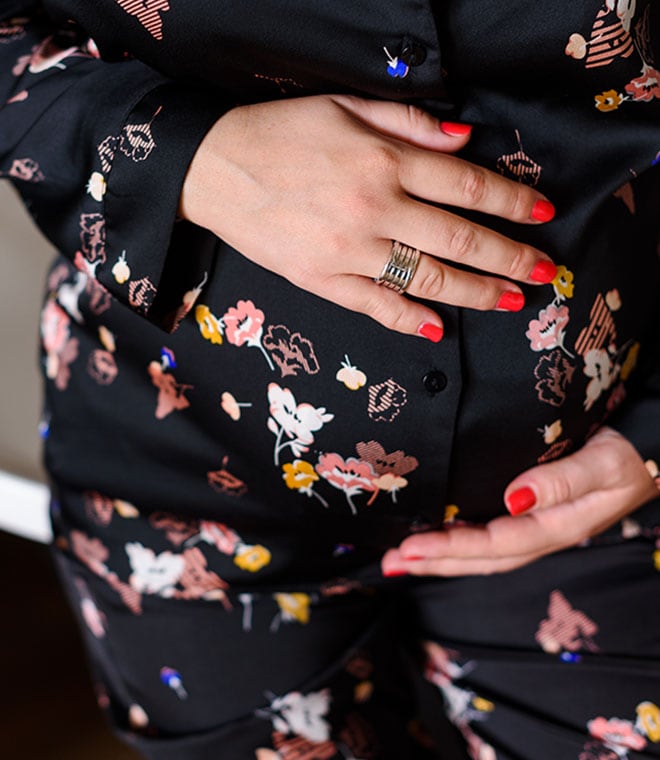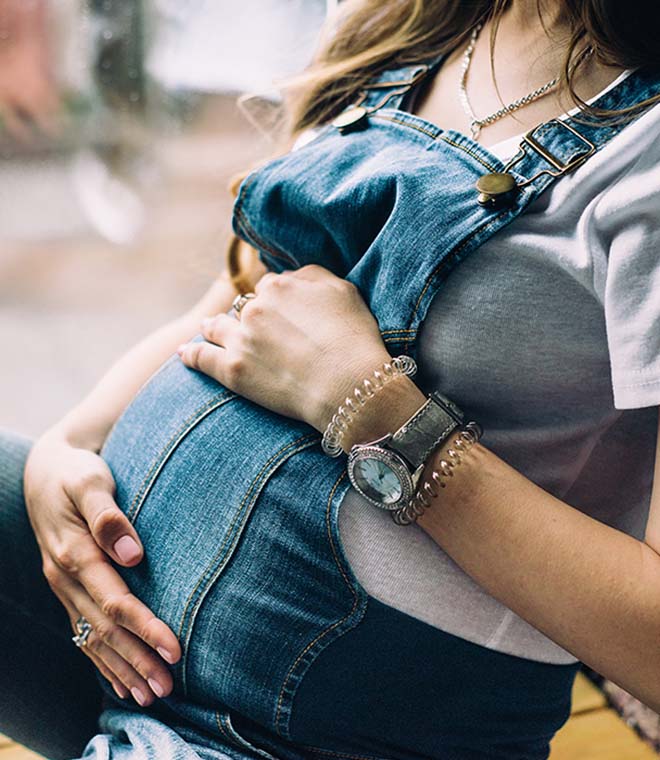Health
Low iron levels during pregnancy: Symptoms & treatments
By Ruben J. Rucoba, MD Sep 26, 2023 • 6 min
If you're pregnant and have anemia, you're not alone. While severe, untreated anemia can be dangerous for you and your baby, mild cases of the condition usually require little more than a change in diet and taking iron supplements and folic acid supplements.
What does low iron in pregnancy mean?
Low iron levels are also known as iron deficiency. Anemia (when blood doesn’t have enough healthy red blood cells) has many causes and iron deficiency is the most common. Iron is used to make hemoglobin, a protein your red blood cells use to carry oxygen to all the tissues in your body.
During pregnancy, your blood volume can almost double, so you may need up to twice as much iron as women who aren’t pregnant. Your body needs this iron to make extra blood to carry oxygen to your baby. This is why many prenatal vitamins contain iron. Iron deficiency affects about 15 to 25% of pregnant women.
Although mild anemia during pregnancy is common, severe cases of anemia can put you and your baby at risk of several problems, including:
- Premature birth
- Poor growth of the unborn baby
- Low birth weight
- Postpartum depression
- Increased risk of death for the mother and baby
What are the symptoms and signs of iron deficiency during pregnancy?
Here are some of the most common symptoms of iron deficiency anemia during pregnancy:
- Fatigue
- Weakness
- Pale or yellow-colored skin
- Trouble concentrating
- Fast or irregular heartbeat
- Lightheadedness or dizziness
- Cold hands and feet
- Chest pain
- Shortness of breath
- Headache
Some of these symptoms, such as fatigue, headache and shortness of breath, can also occur as part of a normal pregnancy. Still, if you are experiencing any of these symptoms, it's important to tell your healthcare provider.
Who is at risk of developing iron deficiency anemia?
Every pregnant woman is at risk of iron deficiency anemia, but your risk is higher if you:
- Eat a strict vegetarian or vegan diet
- Have celiac disease, Crohn's disease or had weight loss surgery where the stomach or part of the stomach was removed
- Have diabetes
- Are overweight or underweight (Body Mass Index above or below normal range)
- Have two pregnancies close together
- Don't consume enough iron
- Have ever had iron deficiency anemia before pregnancy
- Experience frequent vomiting from morning sickness
- Are pregnant with multiples
- Had heavy bleeding with your periods before pregnancy
How is iron deficiency anemia diagnosed?
Before we look at treatment, it's important to note that iron deficiency anemia can often be prevented by getting iron from what you eat, especially before getting pregnant. There are many foods that contain iron, including:
- Meat — beef, lamb, pork and liver/other organ meats
- Poultry — chicken, turkey, duck and liver, especially dark meat
- Seafood – shellfish, clams, oysters and mussels
- Leafy green vegetables — spinach, broccoli, kale, turnip greens and collards
- Dried fruit — raisins and apricots
- Legumes — lima beans, green peas, pinto beans, black-eyed peas and canned baked beans
- Whole wheat bread products
- Iron-fortified pasta, breads, rice and cereals
Treatment for iron deficiency anemia depends on your symptoms, overall health, how severe your condition is and other factors. Your healthcare provider may recommend eating more iron-rich foods. They may also suggest that you consume more foods that contain vitamin C, such as citrus fruits, strawberries, bell peppers, tomatoes and dark, leafy green vegetables. Vitamin C can help your body absorb iron from plant-based sources.
Your healthcare provider may also recommend you take an iron supplement in addition to your prenatal vitamin. Your provider will let you know the dosage you should take and when to take the supplement. Note that you should not take iron supplements without talking to your provider first.
Some pregnant women with iron deficiency anemia may need to see a hematologist, a doctor who specializes in managing blood disorders. In severe cases, they may recommend an intravenous iron supplementation (iron infusion) or even a blood transfusion, although this is uncommon.
If you have iron deficiency anemia during pregnancy, you're not alone. Following your treatment plan as directed by your healthcare provider can help keep you and your baby healthy.
Clinically reviewed and updated by Julie McDaniel, MSN, RN, CRNI September 2023.
Sources:
- https://www.mayoclinic.org/healthy-lifestyle/pregnancy-week-by-week/in-depth/anemia-during-pregnancy/art-20114455
- https://americanpregnancy.org/healthy-pregnancy/pregnancy-health-wellness/treat-iron-deficiency-naturally-pregnancy-11018/
- https://www.cedars-sinai.org/health-library/diseases-and-conditions/a/anemia-in-pregnancy.html
- https://www.nhlbi.nih.gov/health-topics/iron-deficiency-anemia
- https://www.mayoclinic.org/diseases-conditions/iron-deficiency-anemia/symptoms-causes/syc-20355034
- https://www.uptodate.com/contents/anemia-in-pregnancy
- https://ods.od.nih.gov/factsheets/Iron-HealthProfessional/
- https://www.merckmanuals.com/professional/gynecology-and-obstetrics/pregnancy-complicated-by-disease/anemia-in-pregnancy
- https://americanpregnancy.org/healthy-pregnancy/pregnancy-concerns/anemia-during-pregnancy/




